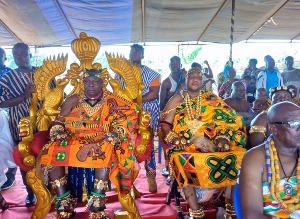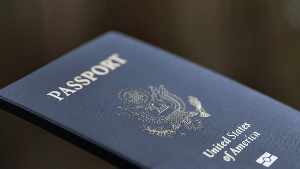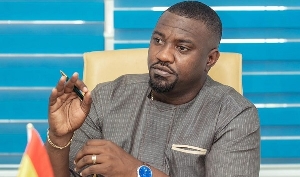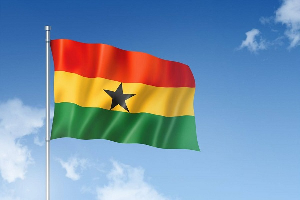The Paramount Chief and President of the Aflao Traditional Council, Torgbiga Amenya Fiti V, has emphasized the importance of peace, saying it is the cornerstone of progress and development.
He said it was crucial to redefine peace "not merely as the absence of conflict, but as the presence of harmony and mutual respect.
Torgbiga Amenya Fiti, who is also the President of the Forum of Kings, Queens, Sultans, Sheiks, Princes, and Traditional Leaders of Africa, was speaking as the special guest of honour at a grand durbar to climax activities that marked the annual celebration of the "Dzawuza" festival ("sacrifice of thanksgiving").
The festival is celebrated by the chiefs and people of Akoumape near Lome in the Republic of Togo and was celebrated on Saturday, September 14, 2024.
The Dzawuza festival, which is deeply rooted in our shared heritage and values, embodying the very essence of our communal life, should be a time to express our gratitude to the Almighty for the blessings we have received, to honor the sacrifices of our ancestors, and to reaffirm the unity that binds us together as one people."
"This annual event reminds us that gratitude is not merely a sentiment—it is a sacred duty, a way of life that we must uphold in every aspect of our existence," he said.
"The significance of Dzawuza extends far beyond our gathering today. It is a call to reunite, foster friendships, and initiate developmental projects that uplift our communities. In the spirit of Dzawuza, let us come together, not just to celebrate but to renew our commitment to one another and to the land we call home.
Let this occasion be a catalyst for new beginnings, where we pull our resources, talents, and wisdom to build a future that honors the aspirations of our forebears and fulfills the dreams of our youth," Torgbiga Amenya Fiti added.
He said traditional leaders bear the sacred responsibility of guiding and protecting their people in these times of change and uncertainty, adding that the need for peace cannot be overstated.
"Peace is the cornerstone of progress—the foundation upon which we build our communities, educate our children, and empower our citizens. It is crucial that we redefine peace, not merely as the absence of conflict but as the presence of justice, harmony, and mutual respect.
Our role as custodians of peace requires vigilance, wisdom, and fairness. We must remind ourselves and our people that peace is not a passive state but an active pursuit—one that demands courage, patience, and an unwavering commitment to the common good. As it is written in the Scriptures, “Blessed are the peacemakers, for they shall be called the children of God” (Matthew 5:9). Let this verse guide us as we strive to maintain and promote peace in our communities," Torgbiga Amenya Fiti emphasized.
The respected chief said traditional leaders have a duty to protect and defend the government in power, adding, "Governance is the structure through which our aspirations are realized, and it is our responsibility to ensure that it remains strong, stable, and effective. We must work hand in hand with the government, offering our support, wisdom, and guidance to ensure that the needs of our people are met and that justice and prosperity prevail."
Torgbiga Amenya Fiti commended the President of the Republic of Togo, H.E. Faure Essozimna Gnassingbé, under whose leadership and guidance he observed the Republic of Togo's journey from the challenges of the past to significant strides in development, stability, and governance.
"It is important to acknowledge and appreciate these achievements, for as the Bible reminds us, gratitude is a virtue that should never be neglected. As it is written in 1 Thessalonians 5:18, 'Give thanks in all circumstances; for this is the will of God in Christ Jesus for you.' When we express our gratitude, it uplifts the spirit and inspires even greater efforts. By recognizing the progress we have made, we honor those who have led us and inspire them to continue working for the good of our nation," he said.
The President of the Forum of Kings and Traditional Leaders of Africa pledged to use his high position to unite traditional authorities on the continent towards the harmonization of peace and unity, which he said were necessary for development.
"As President of the Forum of Kings, Queens, Sultans, Sheikhs, Princes, and Traditional Leaders of Africa, I have pledged to make the pursuit of peace and reconciliation my top priority. This year, I have already embarked on this mission in Kenya, the Democratic Republic of Congo, and most recently in Uganda. Togo, our cherished land, will not be left out of this noble endeavor. We will strive to end wars, heal divisions, and bring about the reconciliation that our continent so desperately needs."
As we celebrate Dzawuza today, let us also draw inspiration from the late musician Bela Bello, whose song, “Miade nyinya lorlor si dzi wo dzim do la,” reminds us of our duty to cherish the land of our birth. Our forebears and fathers did their best to protect and guide this land for you and me; now it is our turn to do the same. We must be guided by the history of our land and resist the temptation to adopt behaviors that undermine our respect for authority."
We must remember that politics is not the ultimate goal in life. Many individuals and companies have flourished and led better lives, often without political intervention, and that level of achievement is within our reach as a nation. Let us support agriculture, particularly in the areas of fish farming, as we are not far from rivers and scattered lakes. The greatest industry any government can establish in our area is a well-developed and accessible modern market. These markets, usually open and free to all, regardless of status, have become dominated by foreigners who are thriving while we continue to demand industries like car manufacturing before we are willing to work. Let's identify a particular crop that can grow well in our area, invest in it, and cultivate it at a level capable of distribution to other districts and regions in the country. Through this small effort, our area will gain recognition, and the government will seek to support and fund the crop at a higher level for export," Torgbiga Amenya Fiti said.
On the recent terrorist invasions in some parts of Northern Togo, Torgbiga Amenya Fiti said the issue should not be solely blamed on security lapses but also the lack of coordination between our chieftaincy, grassroots, and security agencies.
"The land and its territories belong to the Chiefs—we know our indigenous people better than anyone. So why can't we report strange people within our communities to the security agencies? Any chief or traditional leader who loses his territory to these perpetrators of crimes against humanity has himself to blame. He called on all to be on high security alert and "be our brother's keeper, and together with the support of the government, no one can penetrate our defenses."
"As we celebrate Dzawuza" today, let us not only offer our thanks but also renew our commitment to the principles of unity, peace, and progress. Let us pledge to work together, to support one another, and to build a future that honors our past while embracing the possibilities of tomorrow," Torgbiga Amenya Fiti added.
The revered Paramount Chief was presented with a citation of honour for his unflinching commitment to the chieftaincy institution both in Ghana, Togo, and the rest of the continent.
Torgbiga Amenya Fiti was accompanied to the festival by his Chief Protocol Officer, Torgbi Kpambi Vedzesu V, who is also the divisional chief of Teshie-Aflao.
Other chiefs and queens from the Aflao Traditional Area who also graced the colourful event included: Torgbi Atsikpa, Torgbi Hor, Torgbi Zogbla, Torgbi Bedi, Torgbi Sangli, Torgbi Gomela, and Torgbi Boso.
The rest are Mama Amedegbeso, Mama Afeaxewo, Mama Midahufe, Mama Gbigbli, Mama Nyawuade, and Mama Duwofor.
Regional News of Wednesday, 18 September 2024
Source: Leo Nelson, Contributor

















